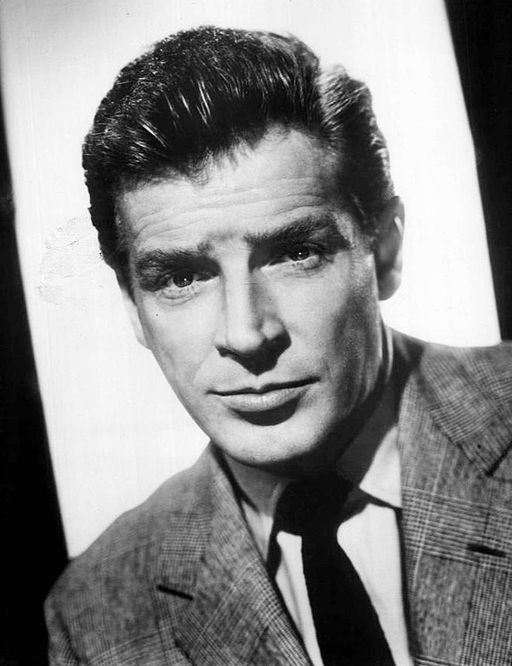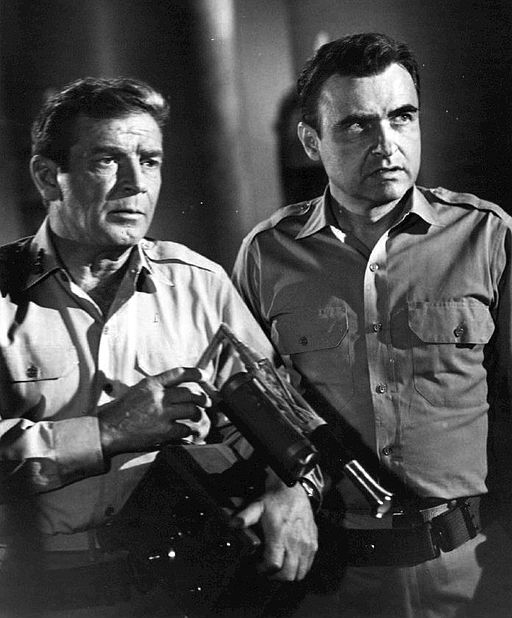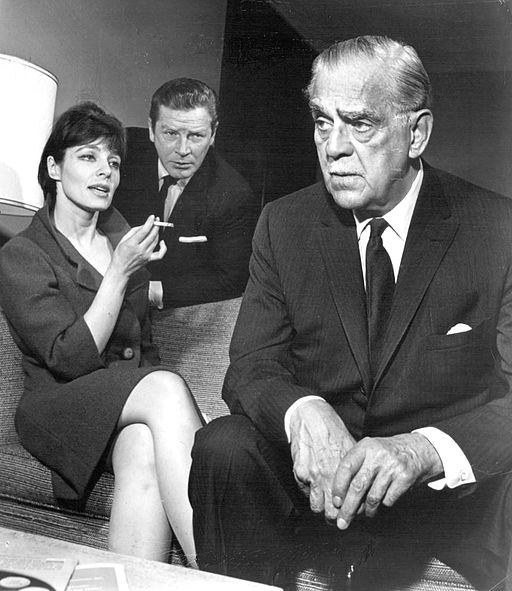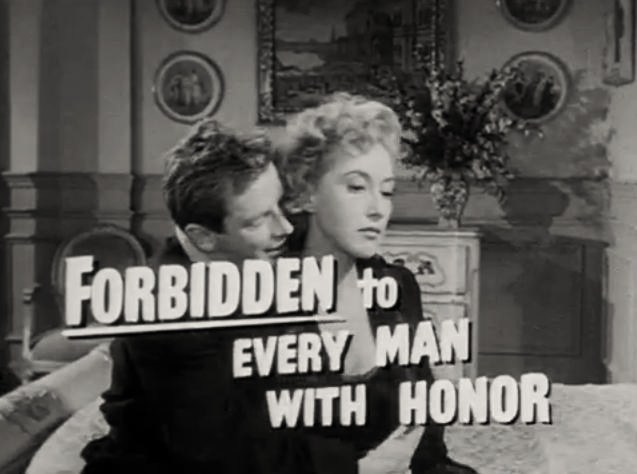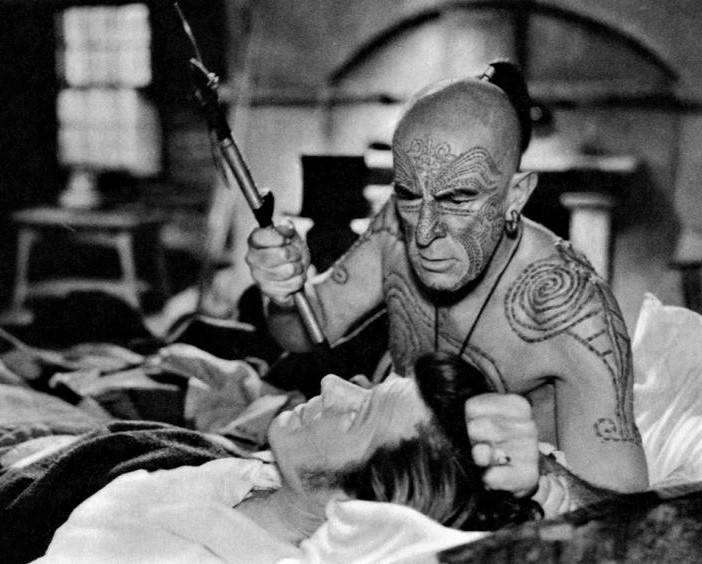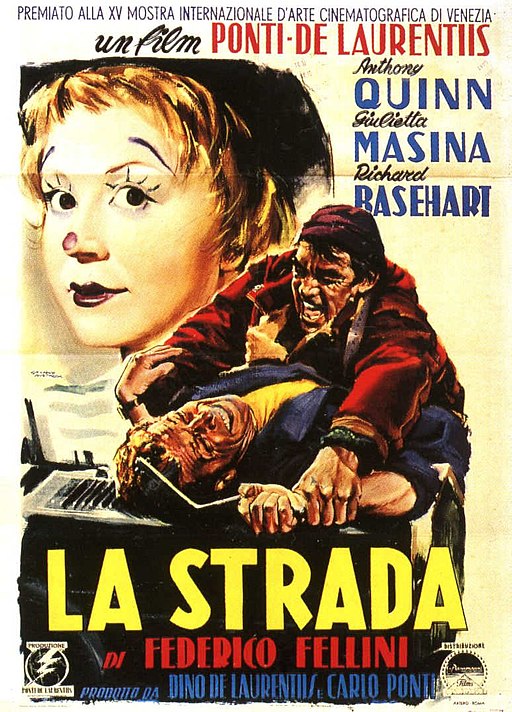Richard Basehart
back| Full Name | John Richard Basehart |
| Stage Name | Richard Basehart |
| Born | August 31, 1914 |
| Birthplace | Zanesville, Ohio, USA |
| Died | September 17, 1984 |
| Buried | The ashes of Richard Basehart were scattered in the Pacific Ocean |
| Married to | Stephanie Klein (m. 1940; div. 1950) - Valentina Cortese (m. 1951; div. 1960) - Diana Lotery (m. 1962 until his death in 1984) |
| Children | Jackie Basehart (with Valentina Cortese) - Gayla Basehart (with Diana Lotery) |
| Notable films | He Walked by Night (1948) - Moby Dick (1956) - La Strada (1954) - Fourteen Hours (1951) - Decision Begore Dawn (1951) |
Richard Basehart
Versatile Actor of Film and Television
Richard Basehart's career spanned over four decades. He was known for his deep, resonant voice and his ability to portray a wide range of characters with depth and complexity.
In addition to his film work, Basehart was also a prominent figure in television, most notably as the narrator of the opening sequences of the TV series "Knight Rider" and as Admiral Harriman Nelson in the science fiction series "Voyage to the Bottom of the Sea."
Related
Richard Basehart (1914 – 1984)
Biography and Summary of his Acting Career
Richard Basehart was born John Richard Basehart on August 31, 1914, in Zanesville, Ohio, USA. The son of an editor for a local newspaper, he developed an early interest in acting. However, his initial career path was not in the performing arts. After high school, he worked as a journalist for a short period. This experience, though brief, likely honed his skills in storytelling and expression, which would prove invaluable in his acting career.
Path to Acting: Basehart's journey into acting began in earnest when he joined a local theater group in Cincinnati. He moved to New York in the late 1930s, where he found work in theater and quickly established himself as a talented stage actor. His Broadway debut came in 1942, in the play "Little Darling". This period was crucial in developing his skills and reputation as a versatile and powerful actor.
Hollywood Success: Basehart's film debut was in the 1947 movie "Repeat Performance". He gained significant attention in 1948 with his role as a calculating criminal in "He Walked by Night". This performance showcased his ability to portray complex, nuanced characters. Throughout the 1950s and 1960s, he starred in numerous films, including notable roles in "Moby Dick" (1956) and Federico Fellini's "La Strada" (1954). His performances were marked by an intense, brooding quality, making him a favorite among directors looking for a powerful leading man or a compelling antagonist.
Television Career: In the 1960s, Basehart transitioned to television, most famously starring in the series "Voyage to the Bottom of the Sea" as Admiral Harriman Nelson from 1964 to 1968. His voice-over work was also notable, particularly as the narrator for the opening sequences of the iconic 1980s TV series "Knight Rider".
Personal Life and Marriages: Basehart was married three times. His first marriage was to Stephanie Klein in 1940, but they divorced in 1950. He then married Italian actress Valentina Cortese in 1951, with whom he had a son, Jackie. This marriage too ended in divorce, in 1960. His third marriage was to Diana Lotery in 1962, with whom he had a daughter, Gayla. This marriage lasted until his death.
Passions and Interests: Beyond acting, Basehart had a passion for literature and the arts. He was known to be an avid reader and had a deep appreciation for poetry and classical music. His interests were diverse, ranging from history to philosophy, reflecting a deeply intellectual and reflective side.
Death and Cause of Death: Richard Basehart's life came to an end on September 17, 1984. He suffered a series of strokes, which ultimately led to his death at the age of 70. His passing marked the end of a remarkable career that spanned over four decades, leaving behind a legacy of diverse and powerful performances. His ashes were scattered in the Pacific Ocean, as per his wishes.
Spouses of Richard Basehart:
Richard Basehart had three marriages throughout his life, each to notable women with their own unique backgrounds and stories.
Stephanie Klein (Married 1940 - Divorced 1950):
- Stephanie Klein was Basehart's first wife.
- The marriage lasted for about a decade, indicating that it spanned the early years of Basehart's career in acting.
Valentina Cortese (Married 1951 - Divorced 1960):
- Valentina Cortese was an acclaimed Italian actress, renowned for her work in both European and American films.
- She was born on January 1, 1923, in Milan, Italy.
- Cortese worked with some of the most prominent directors of her time, including Federico Fellini, Michelangelo Antonioni, and François Truffaut.
- She was known for her roles in films such as "The House on Telegraph Hill" (1951) and "Juliet of the Spirits" (1965).
- Her marriage to Basehart was notable, as they were both prominent actors in their respective film industries. They had one child together, a son named Jackie.
- The couple's separation in 1960 was a significant event, given their stature in the international film community.
Diana Lotery (Married 1962 - Basehart's Death in 1984):
- Diana Lotery, Basehart's third wife, was less known in the public eye compared to Cortese.
- Their marriage lasted until Basehart's death in 1984, indicating a strong and enduring relationship.
- The couple had a daughter named Gayla.
Short Video Documentary on Richard Basehart:
Richard Basehart’s Acting Style:
Richard Basehart's acting style was distinguished by its depth, versatility, and intensity, making him a standout performer in both film and television. His approach to acting was characterized by several key elements:
A] Subtlety and Nuance:
Basehart was known for his ability to convey complex emotions subtly. He didn't rely on overt gestures or dramatic expressions; instead, he used small, finely tuned movements and expressions to communicate his characters' inner worlds. This subtlety made his performances more realistic and relatable, allowing audiences to connect deeply with his characters.
B] Depth and Intensity:
Even in roles with limited screen time, Basehart brought a remarkable depth to his characters. He had a unique way of internalizing a character's motivations and background, which then manifested in his performances as a palpable intensity. Whether he was playing a lead or a supporting role, his presence was often a driving force in the narrative.
C] Versatility:
Throughout his career, Basehart took on a wide variety of roles across different genres. From the disturbed individual in "He Walked by Night" to the adventurous Admiral in "Voyage to the Bottom of the Sea," he showcased an impressive range. His ability to adapt to different types of characters and stories was a testament to his versatility as an actor.
D] Emotional Resonance:
Basehart's performances often had a profound emotional resonance. He had the ability to evoke empathy, whether he was playing a hero, a villain, or a complex, morally ambiguous character. This emotional connection was a hallmark of his acting style, making his performances memorable and impactful.
E] Voice and Diction:
His voice was another significant aspect of his acting. With a distinctive and resonant tone, Basehart's voice added an extra layer of gravitas to his roles. This was especially evident in his voice-over work, where his narration added depth and intrigue to the projects he was involved in.
F] Intellectual Approach:
Basehart's acting was also marked by an intellectual approach. He often portrayed characters that were thoughtful, introspective, and complex. This intellectualism wasn't just in the roles he chose but in the way he played them, often bringing a thoughtful, reflective quality to his performances.
G] Commitment to Craft:
Finally, Basehart was deeply committed to his craft. He approached each role with a seriousness and dedication that was evident in his performances. This commitment helped him to consistently deliver powerful, compelling performances throughout his career.
Awards and Recognition:
Richard Basehart, despite his significant contributions to film and television and the respect he garnered among peers and audiences, did not receive a large number of awards and nominations during his career. This is somewhat reflective of the era in which he worked, when there were fewer award ceremonies and categories than there are today. However, his work was widely recognized for its quality and depth.
Awards and Nominations:
- Emmy Awards: Basehart was nominated for an Emmy Award for his performance in "QB VII" (1974). This mini-series, based on a novel by Leon Uris, dealt with the subject of the Holocaust, and Basehart's performance was critically acclaimed.
- Other Recognitions: While specific awards for many of his film roles are not well-documented, Basehart's performances in films like "La Strada" and "Moby Dick" were highly praised. "La Strada" won the Academy Award for Best Foreign Language Film, and while the award was for the film as a whole and not for individual performances, Basehart's role in the film was a significant contributing factor to its success.
Honorary Mentions and Legacy:
- Star on the Hollywood Walk of Fame: Richard Basehart was awarded a star on the Hollywood Walk of Fame for his contributions to the television industry. This star is a testament to his impact and popularity in the television medium, particularly for his role in "Voyage to the Bottom of the Sea".
- Legacy and Posthumous Recognition: Basehart's legacy in the acting world has grown over time. His performances in both film and television continue to be studied and admired for their depth and intensity. Retrospective recognition and appreciation of his work in the industry have only increased over the years.
Movies featuring Richard Basehart:
1947
- "Repeat Performance": Basehart made his film debut in this film noir. He plays William Williams, a part of a story where a woman gets to relive the last year of her life to try and change its outcome.
1948
- "Cry Wolf": Basehart plays James Demarest in this mystery film about a woman who investigates her late husband's family and uncovers a web of deceit.
- "He Walked by Night": This film noir features Basehart as a brilliant but sociopathic electronics expert turned serial killer, showcasing his range early in his career.
1949
- "Tension": A film noir, where Basehart plays Warren Quimby, a man who assumes a new identity to track down his wife's lover.
1951
- "Fourteen Hours": Basehart stars as Robert Cosick, a mentally disturbed man standing on the ledge of a high-rise building, contemplating suicide.
- "The House on Telegraph Hill": This film features Basehart as Marc Bennett, involved in a suspenseful tale of identity and deception post-WWII.
- "Fixed Bayonets!": A war film where Basehart plays Cpl. Denno, a soldier who must overcome his reluctance to lead his unit in the Korean War.
- "Decision Before Dawn": Basehart portrays Lt. Rennick, an officer in this WWII film about a German POW helping the Allies.
1953
- "Titanic": In this early film about the infamous disaster, Basehart plays a priest who provides spiritual support to the passengers.
1954
- "La Strada": A Federico Fellini masterpiece, where Basehart plays 'The Fool', a circus performer, in this tragic tale of love and loss.
1956
- "Moby Dick": Basehart takes on the role of Ishmael in this adaptation of Herman Melville's classic novel about an obsessive quest for a giant whale.
1958
- "Time Limit": A military courtroom drama where Basehart plays Maj. Harry Cargill, a man accused of collaborating with the enemy during the Korean War.
1959
- "Il Generale Della Rovere": In this Italian war drama, Basehart plays the role of Banchelli, an Italian con man coerced into impersonating a resistance hero.
1961
- "Five Branded Women": Basehart plays Velko, in this WWII drama about five women in Yugoslavia shunned by their villages for consorting with the enemy.
1968
- "The Satan Bug": In this science fiction thriller, Basehart plays Dr. Gregor Hoffman, involved in a plot about stolen deadly viruses.
1972
- "Chato's Land": Basehart plays Nye Buell, a vengeful landowner, in this western about a posse pursuing a Native American for murder.
1973
- "The Red Badge of Courage" (TV Movie): A retelling of Stephen Crane's novel, with Basehart narrating the story.
1976
- "Mansion of the Doomed": In this horror film, Basehart plays Dr. Chaney, involved in a gruesome tale of a surgeon obsessed with restoring his daughter's sight.
1978
- "The Island of Dr. Moreau": Basehart portrays Sayer of the Law in this adaptation of H.G. Wells' novel about a mad scientist creating human-animal hybrids.
1980
- "Being There": In this satirical drama, Basehart has a minor role as Vladimir Skrapinov, adding to the film's commentary on politics and media.
1981
- "The Archer": This TV movie features Basehart in a story about a mysterious archer defending a baron's land.

